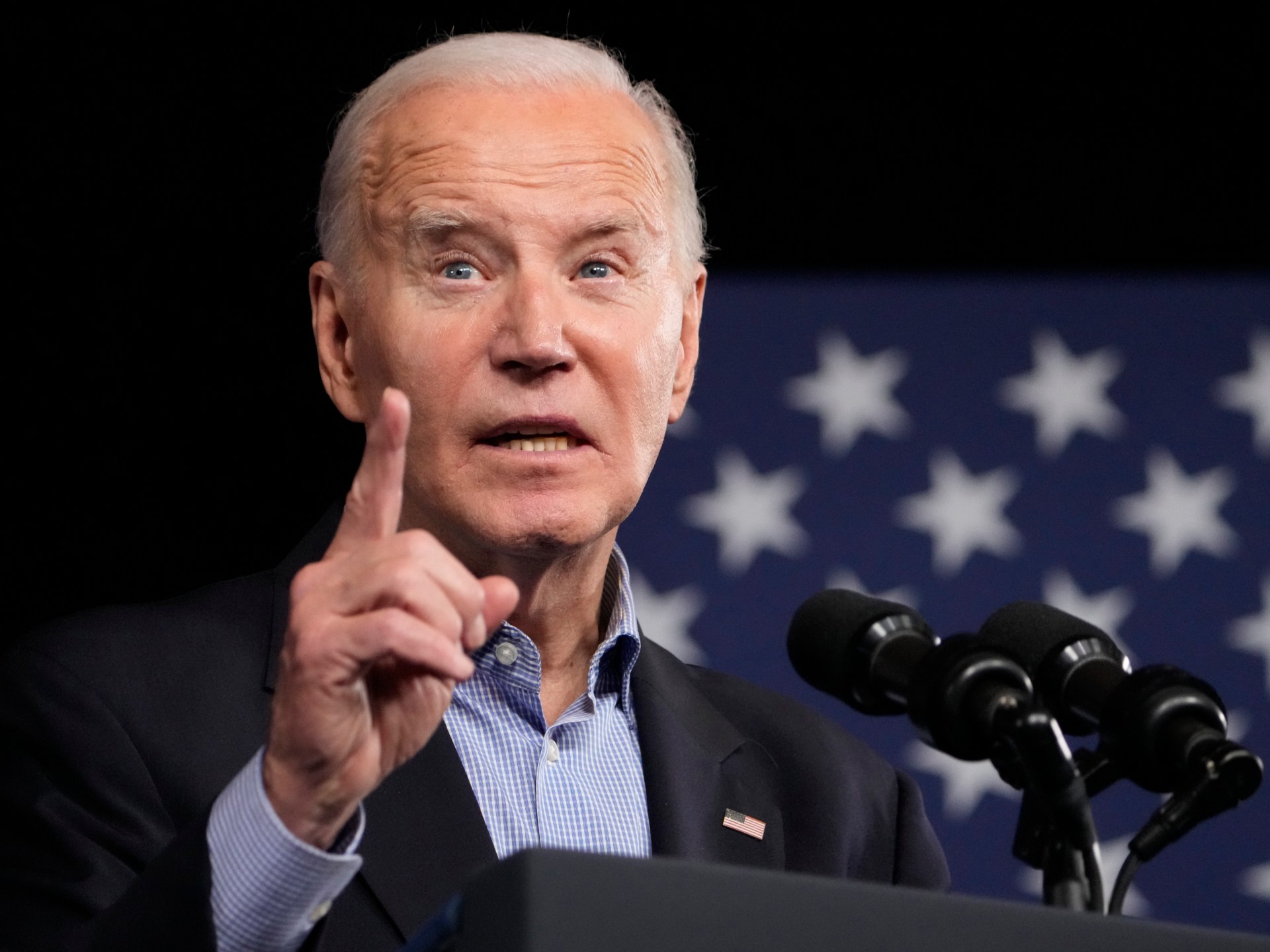‘Real good shape’: Biden-Sunak hail ties at White House meet
AI, trade, and war in Ukraine are set to be discussed during Sunak’s first visit to the White House as UK prime minister.
United States President Joe Biden and United Kingdom Prime Minister Rishi Sunak have opened a White House meeting, hailing ties between the longtime allies as they prepared to discuss a wide range of topics, expected to include artificial intelligence (AI), trade, the war in Ukraine, China and NATO leadership.
Sunak’s office said the prime minister, on his first White House trip in the role, would present Biden on Thursday with relics of his English ancestry, including a copy of Biden’s great-great-grandfather Christopher Biden’s book Naval Discipline: Subordination Contrasted with Insubordination. Biden has both Irish and English heritage, and on a trip to Ireland in April described the book by the 19th-century sailor as the Royal Navy’s guide to combating mutiny.
“We will put our values front and centre to deliver for the British and American peoples,” Sunak said at the start of his talks with Biden.
Biden, meanwhile, described the “special” relationship between the two allies as “in real good shape”.
Ahead of the meeting, Sunak announced that the UK would host the world’s first summit on AI later this year, saying Biden had thrown support behind the move.
Sunak has sought to position the UK as a leader in the emerging race to address the myriad challenges posed by rapid AI developments – a goal that some say is undermined by the country’s 2020 exit from the European Union.
“I’m delighted the US is supporting our summit,” he said, insisting Britain was well-placed to play a leadership role to ensure the right “guardrails” are in place to exploit AI safely, he said.
Trade has also loomed large during Sunak’s visit, which included meetings with congressional and business leaders. He also attended a Washington Nationals baseball game on Wednesday, politely declining the chance to throw out the ceremonial first pitch.
Sunak has said the US and UK should be as unified on trade as they have been on defence and support for Ukraine since Russia invaded the country more than a year ago. The US and UK are the two biggest donors to war-torn Ukraine.
While the opportunity for a bilateral free-trade agreement with the US was seen as a top prize for supporters of Brexit, a comprehensive deal has remained elusive and the Biden administration has shown little enthusiasm.
At home, Sunak has also faced particular pressure to respond after Biden launched $369bn of subsidies to drive the development of electric vehicles and other clean technologies in the US.
“Just as interoperability between our militaries has given us a battlefield advantage over our adversaries, greater economic interoperability will give us a crucial edge in the decades ahead,” Sunak said ahead of the White House meeting.
He has said a new US-UK alliance would help both countries protect their supply chains and navigate a global economy where new powers are “manipulating global markets, withholding crucial resources and trying to establish a stranglehold over the industries that will define our future”.
Sunak has also supported British Defence Secretary Ben Wallace as a candidate to lead NATO before the Western military alliance holds a summit next month in Lithuania, with the prime ministers of Denmark and Estonia also seen as contenders.
NATO Secretary General Jens Stoltenberg’s term in the job is due to end in October.
Biden has given no indication of whom he supports, although his vote will be decisive in an alliance where the US is by far the biggest player.
Speaking alongside Sunak, Biden hailed the so-called AUKUS partnership – an agreement between the US, UK and Australia that will see Australia acquire at least three US nuclear submarines, widely seen as part of an effort to build a bulwark against Chinese military might in the Pacific.
Biden added the duo would also discuss building on the Good Friday Agreement, which was signed on April 10, 1998, by the British and Irish governments, as well as Northern Ireland’s major political parties, and sought to end decades of sectarian violence in Northern Ireland.



